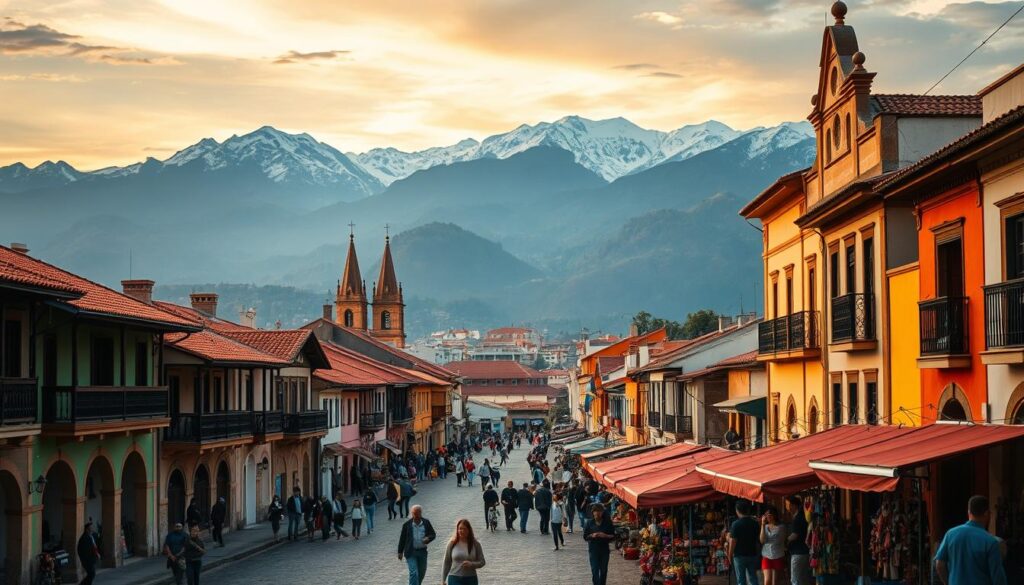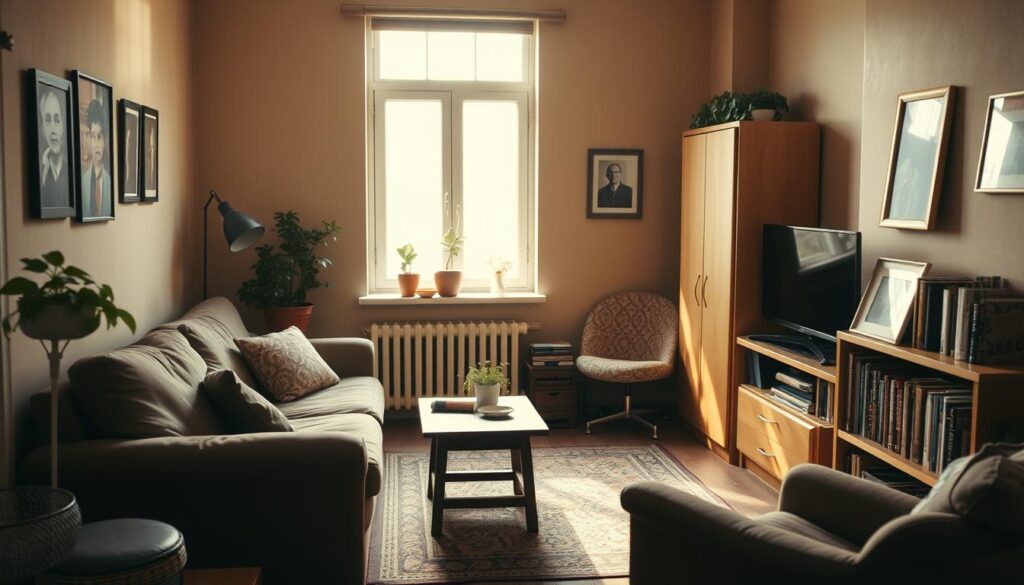Surprising stat: nearly half of U.S. expats are women, and the average age is 45.9—proof that geoarbitrage appeals across demographics.
I use geoarbitrage to show how modest budgets stretch much further when you choose the right cities and countries. This is not about the cheapest picks; it is about safety, health care access, visa ease, and daily convenience for remote earners or retirees.
Expect tradeoffs: language barriers and different tax rules may appear. The U.S. foreign earned income exclusion reduces some federal tax exposure, yet local levies differ by jurisdiction.
I evaluate places by rents, utilities, medical care, and community fit. For practical comparisons and cost benchmarks, see this brief guide: 5 countries where you can easily live just $2.
Key Takeaways
- Geoarbitrage lets money buy more comfort when you pick the right locations.
- My criteria: safety, health care, visa options, and daily convenience.
- Expats are diverse: families and mature professionals thrive abroad.
- Tax rules vary: the U.S. exclusion helps, local taxes still apply.
- Plan budgets, insurance, and residency before you move.
How to Stretch $2,000 per Month: Geoarbitrage, Safety, and Quality of Life
Smart relocation starts with a clear budget baseline and a checklist for risks, services, and daily comfort. I map hard numbers to lived realities so you know what to expect from rent, transport, food, and extras.
What $2,000 Buys Abroad Today
I benchmark core expenses against Numbeo and local rental markets: a comfortable one‑bed apartment, utilities, internet, and routine transport often fit inside this figure.
Healthcare access varies: OECD per‑capita data shows much lower spending across popular hubs, yet quality care remains available in major cities. That lowers out‑of‑pocket risk while preserving funds for travel and leisure.
Balancing cost living, visas, healthcare, and safety
Choose places where low costs come with good safety scores and easy residency routes. I weigh visa friction, local tax rules, and airport links before adding a city to my shortlist.
- Costs vs. comfort: rent, utilities, mobile, food.
- Visa: residency paths and stay duration.
- Healthcare: access, insurance options, and clinics.
- Safety: local peace index and expat feedback.
Practical tip: test with a 3–6 month stay, keep emergency funds, and buy international insurance before signing long leases.
Mexico: Beach Life, Colonial Cities, and Strong Expat Communities on a Budget
Mexico blends low housing costs with accessible health care and lively markets. I model realistic budgets that keep essentials under control while preserving travel and leisure funds.
Typical monthly costs: rent, food, and transportation
Sample math: one‑bed city center rent about $452, utilities ~$51, internet ~$26. Street food and mercados cut food bills; a dinner for two averages $30.
Transport: buses and rideshares keep daily commuting cheap. Overall cost fits many plans that aim for 2,000 per month when you prioritize central but safe neighborhoods.
Best cities for expats
Start with San Miguel de Allende for colonial charm and large community. Choose Riviera Maya for beach services and English support. Pick Mexico City for museums, dining, and private hospitals.
Healthcare access and visas
Public options exist plus good private clinics in major hubs. Explore temporary resident and retiree visa paths early, and factor Mexico’s tax rules into your net budget.
Lifestyle perks
Culture, markets, and frequent U.S. flights make short trips easy. I recommend trial stays of one to three months to test neighborhoods, safety, and local rhythm.
Portugal: Western Comforts, Mild Climate, and High Safety Scores
Portugal offers reliable public services, walkable towns, and manageable living expenses that suit retiree budgets and remote earners.
Cost benchmarks: Lisbon, Porto, coastal towns
Typical prices: one‑bed city center ~$729; three‑bed outside ~$937; utilities ~$109; internet ~$34; dinner for two ~$36.
| Location | Rent (1‑bed center) | Utilities | Notes |
|---|---|---|---|
| Lisbon | $729 | $109 | Higher demand, strong transit links |
| Porto | $600 | $100 | Lower than capital, vibrant city life |
| Ericeira / Mafra | $550 | $95 | Value towns near Lisbon; beach access |
| Cascais | $800 | $110 | Polished coastal living, higher prices |
Healthcare and tax notes
Per‑capita healthcare spend is about $3,816; public and private systems deliver quality at lower outlays than U.S. peers.
Tax tip: Portugal taxes residents on worldwide income. Engage a local advisor and verify NHR updates before applying for visa or residency.
Where to settle for value
- Mafra: best price‑to‑commute balance.
- Ericeira: surf culture and affordable streets.
- Cascais: transit links, polished services.
For detailed cost comparisons and practical benchmarks, review this guide: cost living Portugal.
Thailand: From Bangkok Buzz to Chiang Mai Calm on a $2,000 Budget
I compare two very different Thai options: Bangkok’s urban pulse and chiang mai’s relaxed pace. Both deliver strong services, but they meet different needs and budgets.

Living costs: Bangkok vs. Chiang Mai
Rents vary: a one‑bed in city centers averages about $366, while three‑bed outside hits roughly $543. Chiang Mai often offers modern condos for $400–$600; Bangkok runs higher but adds amenities.
| Location | Typical rent (1‑bed center) | Notes |
|---|---|---|
| Bangkok | $366 | Transit, private hospitals |
| Chiang Mai | $450 | Quieter, nature access |
| Typical costs | Utilities ~$60, Internet ~$17 | Dinner for two ~$22 |
Daily life: food, transport, and healthcare
Food: Street meals run $1–$3, so eating out keeps budgets low. Markets and cafés offer variety without cooking every day.
Transport: BTS/MRT move you fast across Bangkok; Chiang Mai relies on motorbikes and Grab for short hops.
Healthcare: Private hospitals in both cities provide high quality care and clear pricing. I budget for insurance plus occasional clinic visits.
Culture, community, and practical tips
Festivals like Loy Krathong boost culture and travel chances. Coworking hubs and fiber internet support remote work. Choose Bangkok for energy; pick chiang mai for calmer neighborhoods and a tight‑knit expat community.
- Save by: booking off‑season stays and testing neighborhoods for 3 months.
- Plan: hold emergency funds, buy international insurance, check visa options.
Malaysia: Modern Amenities, English-Friendly, and Low Living Costs
If you want strong amenities without high bills, Malaysia is worth a close look. I compare Kuala Lumpur’s fast pace with Penang’s coastal charm and show how budgets fit a comfortable life.
Kuala Lumpur and Penang price snapshots
Core costs are low: one‑bed city center ~$345; three‑bed outside ~$422; utilities ~$44; internet ~$27. Dinner for two averages ~$18, and a movie runs about $3.35.
| Item | Kuala Lumpur | Penang |
|---|---|---|
| One‑bed (city center) | $345 | $360 |
| Utilities & Internet | $71 | $70 |
| Dining out (dinner for two) | $18 | $15 |
| Notes | Transit, malls, coworking | Heritage sites, beaches, expat hubs |
Medical tourism and foreign income tax treatment
Healthcare: international hospitals offer quality care at low cost; per‑capita spend is modest yet outcomes are strong. Tax note: Malaysia does not tax foreign earned income, which helps remote professionals maximize take‑home pay.
City lifestyle vs. coastal slow living
KL gives transit, malls, and fast internet. Penang trades that for street food markets and a slower pace. Both suit expats chasing low cost living and leave room inside a 2,000 per budget for travel and savings.
Vietnam: Café Culture, Coastal Cities, and Standout Value
Vietnam mixes coastal charm with efficient urban hubs that stretch modest budgets far. I focus on practical costs, mobility, and daily life so you can see how a moderate budget supports comfort and travel.
Rent and dining: Da Nang, Hanoi, Ho Chi Minh City
Rent: one‑bed options commonly range $400–$700, with Da Nang offering ocean‑adjacent value and Hanoi or HCMC giving modern apartments across diverse neighborhoods.
Food: street meals often cost $1–$2; nicer restaurants run $5–$10. That keeps overall costs low and frees cash for leisure.
Getting around: motorbikes, Grab, and walkable areas
Motorbikes are the default: cheap, fast, and flexible. Grab fills gaps for short rides and airport transfers.
Choose central districts with sidewalks and lighting to make daily errands and café hops safe and simple.
How a moderate budget supports travel, leisure, and savings
After rent and food, you’ll still cover gyms, coworking, and monthly regional travel. I recommend reserving emergency funds and buying international insurance.
| City | Typical rent (1‑bed) | Average meal cost |
|---|---|---|
| Da Nang | $400–$600 | $1–$8 |
| Hanoi | $450–$700 | $1–$10 |
| Ho Chi Minh City | $500–$700 | $1–$10 |
Community: expats cluster around coworking hubs and café scenes. Tap local groups for housing leads, language exchange, and weekend trips.
- Visa tip: monitor e‑visa rules and short extensions.
- Neighborhoods: prioritize clinics, grocery delivery, and transit links.
- Travel hack: shoulder months save on flights and coastal stays.
Costa Rica: Pura Vida Living with Nature at Your Doorstep
Costa Rica pairs easygoing daily life with varied microclimates that stretch modest budgets without sacrificing comfort. I focus on how rent, healthcare, and local prices shape a balanced lifestyle near beaches or up in cooler mountain towns.
Monthly costs and where your money goes further
Typical costs: one‑bed city center ~$491; three‑bed outside ~$619; utilities ~$63; internet ~$46; dinner for two ~$38.
| Item | Estimate | Notes |
|---|---|---|
| Rent (1‑bed center) | $491 | Central Valley offers value near services |
| Utilities & Internet | $109 | Modest across most towns |
| Leisure | Movie $5.73 / Dinner $38 | Outdoor activities are low cost |
Public healthcare options and visa pathways
Healthcare: public enrollment covers basics with contributions around 7%–11% of reported income. Per‑capita spend ~$1,622; many expats add private visits for speed.
Visa: residency routes vary: pensionado and rentista paths suit retirees and remote earners. No tax on foreign income simplifies planning for U.S. clients.
- Coastal vs mountain: inland towns lower rent and offer milder climate while keeping beaches reachable.
- Timing: off‑peak moves often secure better housing deals near popular beach towns.
- Feasibility: with careful budgeting, $2,000 covers comfortable rent, healthcare contributions, and nature‑rich outings each month.
Panama: Dollarized Economy, Easy Residency, and Tropical Variety
Panama’s dollarization simplifies budgeting and removes exchange risk, so planning rent and monthly expenses is straightforward.
I explain two practical residency routes: the Pensionado program, which requires roughly $1,000/month pension for qualifying retirees, and the Friendly Nations path for professionals, entrepreneurs, or investors who meet banking or investment thresholds.

Cost snapshots, tax perks, and flights
Rents run about $730 for a one‑bed city center; three‑beds outside close at $826. Utilities average $86; internet $44. Dinner for two sits near $50, and a movie is about $5.50.
Tax benefit: foreign earned income is not taxed locally, which helps remote workers protect net pay.
“Panama balances modern hospitals and short U.S. hops with life beyond the hurricane belt.”
- Healthcare: quality care at lower prices; many U.S.‑trained doctors.
- Location choices: city, beach, or mountain retreats within easy reach.
- Practical tip: verify Friendly Nations updates and bank requirements before arrival.
Model: with smart neighborhood choice and some dining restraint, a comfortable life within a $2,000 plan is realistic for many.
Colombia: Eternal Spring Cities and Budget-Friendly Urban Living
Colombia pairs pleasant highland climates with affordable city living that stretches budgets without sacrificing comfort. I contrast Medellín, Cartagena, and the Coffee Triangle to show how costs, services, and culture trade off across choices.
Medellín, Cartagena, and the Coffee Triangle on $2,000
Medellín: eternal spring weather, a reliable metro, and neighborhoods with parks and clinics. One‑bed city center rent averages ~$256; utilities ~$67; internet ~$24. That leaves room each month for dining, coworking, and weekend trips.
Cartagena: Caribbean culture and tourism flair. Costs rise near the walled city, so pick well‑lit, transit‑served zones for value and safety.
Coffee Triangle (Pereira, Armenia, Manizales): mountain calm and lower prices. It’s ideal for those who want nature, friendly expat groups, and cheaper rent without losing urban services.
Healthcare modernization and tax notes
Healthcare has modernized: private clinics and good hospitals offer high value. Per‑capita spend sits near $1,336, so private visits remain affordable for routine care and emergencies.
Tax note: Colombia taxes worldwide income for residents. Plan structure before moving: assess residency rules, consult an advisor, and factor taxes into your monthly budget.
- Neighborhoods: choose well‑lit, transit‑served districts close to clinics and parks.
- Mobility: Medellín’s Metro and cheap taxis make car‑free living realistic.
- Community: join language exchanges and expat groups to speed integration.
- Safety: use current, neighborhood‑level intel, not decade‑old headlines.
“With careful planning, Colombia offers modern apartments, private healthcare use, and frequent cultural outings at very manageable cost.”
Ecuador: Mountain Charm, Coastal Calm, and Consistent Affordability
For remote earners and retirees seeking steady prices and clear perks, Ecuador deserves attention. I focus on practical costs, local hubs, and retiree benefits that improve monthly budgets.

Cuenca, Vilcabamba, and diversified expat hubs
Cuenca offers year‑round spring weather at altitude; Vilcabamba delivers a gentler valley rhythm. Both towns host long‑running expat networks that make housing and services easier to find.
Tax treatment and retiree perks
Tax advantage: Ecuador does not tax income earned outside its borders, which simplifies planning for remote workers. Retirees often receive discounts on flights, utilities, and cultural events.
- Budget snapshot: one‑bed center ~$369; three‑bed outside ~$430; utilities ~$48; internet ~$41.
- Healthcare per‑capita spend ~$955; private top‑ups improve speed and English support.
- Coastal towns add beach access at lower prices than many global coasts.
Practical tip: learn basic Spanish, test‑live 60–90 days across two cities, and you’ll see how modest rent and low cost living free cash for travel and private care.
“With careful choices, $2,000 per month comfortably covers housing, healthcare, and routine leisure in most Ecuadorian towns.”
Where in the world can I live on $2000 a month? Georgia and Bulgaria Make the Shortlist
Both Georgia and Bulgaria deliver European comforts at a fraction of Western prices. I present why each earns a spot on a 2,000 per plan: strong community ties, low rent, and easy travel links.
Georgia: Tbilisi rents, wine culture, and long visa stays
Value: many nationalities get visa‑free stays up to one year. That reduces paperwork and lets you test neighborhoods before committing.
Housing: Tbilisi offers one‑bedrooms from about $300 to $600 for spacious, renovated flats. Target historic cores or updated Soviet‑era buildings for charm and savings.
Lifestyle: renowned wine culture and hospitable local culture make social life easy. Coworking spaces and meetups support expat routines.
Bulgaria: Sofia value, Black Sea summers, and four‑season living
Affordability: Sofia city‑center one‑beds typically run $400–$700. That leaves room in your monthly budget for dining out and regional trips.
Variety: summers on the Black Sea, winter ski towns, and a true four‑season climate suit many hobbies and lifestyles.
Community: growing expat hubs, tech jobs, and English‑friendly services make settling simpler. Note: residency paperwork here needs more upfront planning than Georgia.
- Mobility: budget flights link to Europe; trains and buses make weekend escapes cheap.
- Housing tip: aim for renovated buildings near coworking or transit to balance cost and convenience.
- Fit: pick Georgia for low‑friction stays and deep culture; choose Bulgaria for EU access and seasonal variety.
| Feature | Georgia (Tbilisi) | Bulgaria (Sofia) |
|---|---|---|
| Typical rent (1‑bed) | $300–$600 | $400–$700 |
| Visa / residency | Visa‑free many nationalities up to 1 year | EU residency rules; more documents |
| Best for | culture, wine, low friction stays | EU proximity, coast, four seasons |
Conclusion
Smart relocation turns modest budgets into larger daily comforts when you pick cities that match your priorities.
I distill my findings: cost living and rent typically fall far below U.S. prices across many countries, yet quality life remains strong thanks to good healthcare, safe neighborhoods, and active expat communities.
Shortlist cities like chiang mai, Lisbon, Medellín, Tbilisi, and Penang by comparing food, transport, and utility prices. Balance beaches or mountain climate with your daily routine and work needs.
Track expenses weekly in local currency, model taxes and visa fees, and keep three to six months of cash as a buffer.
Next step: pick three places, book 60–90 day stays, test amenities and community, then move when numbers and lifestyle align.

